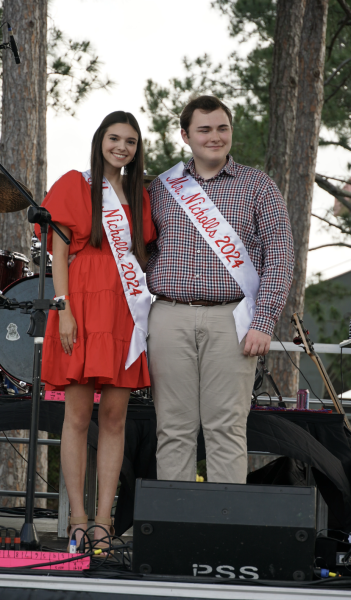Supreme Court decision sets precedent for health care fight
Supreme Court Justice Ruth Bader Ginsburg made headlines with her dissenting opinion in the court’s ruling in the Burwell v. Hobby Lobby case, and for the most part, she was absolutely right.
The Burwell decision ruled that companies with closely-held religious beliefs, such as Hobby Lobby, would not be required to provide their employees coverage for contraception under the Affordable Care Act. The Affordable Care Act relies on the Health Resources and Services Administration, part of the Department of Health and Human Services, to specify what kinds of preventive care for women should be covered in certain employer-based health plans. HHS exempted religious employers, such as churches, non-profit organizations that object to any required contraception, employers providing grandfathered plans and employers with fewer than 50 employees.
Hobby Lobby, which employs 21,000 people and is a for-profit business, does not fall under any of these exemptions.
In her dissent, Justice Ginsburg said that the exemption sought by Hobby Lobby would “deny legions of women who do not hold their employers’ beliefs access to contraceptive coverage.”
We live in a nation founded on the principles of religious freedom, an ideal so dear to the founding fathers that it is the first explicitly mentioned right in the Constitution. However, the First Amendment also provides the Establishment Clause which prohibits the country from giving preference to one religion over another. This ruling, as is said in Ginsburg’s dissent, could be seen as giving accommodation to one religion over another.
In the 1990 case of Employment Division v. Smith, a case in which two Native Americans were fired because they ingested peyote as part of a religious ceremony, the Supreme Court ruled that a person cannot defy the nation’s laws even as an expression of religious belief. Congress passed the Religious Freedom Restoration Act in 1993 as a response to the ruling. The RFRA required strict scrutiny when a neutral law of general applicability “substantially burdens a person’s exercise of religion.” The Court’s decision was reached by citing the RFRA as under it, for-profit organizations could be determined to be “persons.”
While I will agree that Hobby Lobby’s owners have every right to practice and believe whatever they choose, they lose the right to spread their beliefs to their employees the moment they begin making a profit from their business.
A business cannot assume that all of its employees have similar beliefs nor can that business assume that the beliefs of its owners do not infringe on the religious beliefs of their employees. Yes, the United States is a made up of mostly Christians. However, the United States is not made up of only Christians and the Constitution provides protection for all religions.
“Religious organizations exist to foster the interests of persons subscribing to the same religious faith. Not so of for-profit corporations. …,” Ginsburg said. “The distinction between a community made up of believers in the same religion and one embracing persons of diverse beliefs, clear as it is, constantly escapes the Court’s attention. One can only wonder why the Court shuts this key difference from sight.”
A person being provided coverage for preventative health care by their employer is not something which should be decided on the basis of religious beliefs. No one of good conscious can expect one of their employees to come up with the cost of some forms of contraception unless they also intend to give that person a raise.
However, the lack of access to affordable preventative care opens an entirely new dialogue about an employer’s right to use their religious beliefs as a basis for the policies of a diverse company.
As Ginsburg said in her dissenting opinion, the Court has ventured into a minefield. This ruling is the first time the Court has exempted a for-profit organization from a generally applicable law. Now, the precedent has been set.















